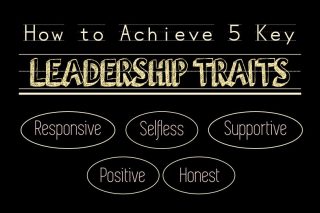Being a good team player has become even more important during these times, with many of us thrown into sharing close quarters with our partner, children, and/or extended family… All. Day. Long. These dynamics can certainly play havoc with our psyche and our emotions. So keeping things as smooth and productive as possible is important whether you are at home or back at the office.
For me, the home I share with my husband used to feel plenty big enough for us and our two dogs. Now it often feels like we live in a shoebox! This tiny box forced me to think outside of it, back to some formalities that kept me high functioning in the corporate world: specifically, teamwork. Teamwork does not always come naturally to employees and homebound families who are collaborating now more than ever. In these times, our sanity might be saved by learning to collaborate better! The first step to becoming a better collaborator starts with becoming a better team player.
8 Tips to Be a Better Team Player at Work and Home
Communication
Yes, communication always tops these lists, but for a good reason! Effective communication with the team, whether coworkers or family, is critical. It’s how we present ideas, provide feedback, and ultimately accomplish goals, even if the goal is preparing three meals a day. Empathy (understanding someone’s feelings) is particularly important to communication, because being a good team player means having empathy for others and using it when communicating. Empathy does not mean taking what the other person says and leaping in with your own story or complaint; you want to acknowledge their challenge and say, “I understand that must be very challenging.”
Positive and Negative Balance
Right now for many of us, it is especially challenging to strike a balance between positive and negative, especially when it comes to providing feedback. When tensions run high, a knee-jerk reaction can make us express our concerns in a (probably unintentionally) spirit-crushing way. If we don’t know when to motivate our work team, our kids, or our spouses, we run the risk of stopping their forward motion. I recommend the sandwich strategy: say something positive, then state the issue, then follow up with something positive, sandwiching the negative in between the positive. Try, “Honey, I really appreciate your cooking dinner. It would be great if you could remember to turn off the oven next time. I’d love for you to make more of that delicious chicken piccata!”
Work Flow
A good team player can explain how things work, and can also suggest new and better ways of doing things while keeping the team’s goals in mind. My husband has a “system” for Swiffering the floors each day—little did I know my exercise routine was interfering with his system. He suggested that waiting to clean until later in the morning would make for a much smoother morning for everyone.
Organization
Disorganization can be confused with not caring or not being respectful of others’ time—probably not a message you want to convey. When meeting with other members of your work team, take a few moments to prepare in advance, making sure all the notes and tools you need are accessible. Having an agenda for your meeting will really help keep things on track. At home, we purchased a small dry erase board to track the daily and weekly tasks and goals for all to see. It is super helpful for reminding everyone of the shared responsibilities.
Priorities
High-performing teams meet goals when everyone on the team has the same priorities. How do your priorities match with the rest of your team’s? If they don’t match up, why not? Do you need to chat with the team leader about your concerns? Would someone else be better suited for the team? Personally, my husband wanted to clean out the garage when I felt it was already clean. I expressed my concerns, and he explained why another cleanout was important as we had items that would get ruined in the summer heat. The conversation was very helpful to make me understand the importance of the project—not a fun project, but it sure looks nice now!
Deadlines and Deliverables
The quickest way to lose your credibility is by not keeping your word. Stuff happens—life is a balancing act for us all right now—but that’s no excuse for hanging your team or anyone else out to dry. Renegotiate your commitments when you need to. Be someone your team can count on!
Respectful Disagreements
The best teams are made of different ideas and methodologies, which is bound to lead to disagreements now and then. No matter what happens on the team, disagreements and all, the individuals should always be treated with respect. Remember how you’re all working toward the same priorities and goals? Disagreements happen, and the questions, concerns, and challenge of it all can lead to some of the best work. Just remember that a great team player does it all respectfully!
Fun Times
Times are tough and projects are hard. But a successful team will remember to have fun and keep things light now and then. Building a bond with the rest of the team will help everyone be a better team player. Celebrate your successes and laugh, laugh, laugh!
In Conclusion
Whether we’re part of a work team, a family, a sports team, or a social circle, we all have to work on teams. And it can take effort to play well with others, because it doesn’t always come easily! Hopefully this list will remind us how to be better all-around team players. The best news is, it only takes one amazing team player to inspire the rest of the team toward greatness!



Leave a Reply
You must be logged in to post a comment.